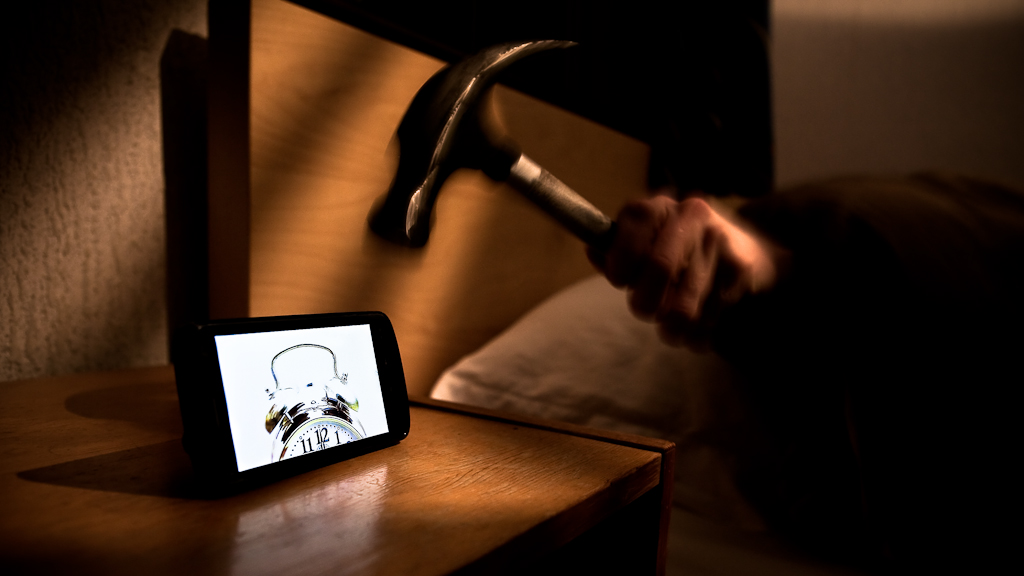A team of scientists studied the recipe to create the perfect alarm that leaves us alert upon awakening, including frequency, melody, and volume.
With the return of office work — and the inability to get out of bed immediately for a Zoom meeting — many of us will wake up early to Avoid rush hour. That’s why it’s important that we use the best alarms.
But what kind of alert leaves us Alert as soon as you wake up? Pythagoras asked this question around 500 BC and believed that certain music – melodies that awaken energies – had the ability to counteract the drowsiness we feel upon awakening.
It seems he was right. Research has shown that certain beeps can improve our alertness when we wake up.
In particular, cues to be in tune (Like “ABC” from The Jackson 5) has melodies that energize the listener and are good for an effective wake-up call. But to understand why, we must first understand how our brains respond to complex stimuli when they are out of sleep.
Getting up well is important
Waking up in a daze never feels good. And how we wake up not only affects our mood and expectations for the day, but also our knowledge and mental performance.
In some cases, drowsiness after waking up can be dangerous after several hours. It reduces our ability to make decisions (As in health situations, emergency response, safety, or while driving).
Decreased cognitive alertness is known as ‘sleep inactivity’. It is a growing concern because it can have serious consequences while performing high-risk tasks such as driving.
How does the brain wake up?
Going during sleep is not an on and off system, brain scans have shown. Depends on getting up complex biological processessuch as increased blood flow to the blood.
Studies show that the areas of the brain that are most important for alertness take longer to wake up than others. This means that we may be awake, but we are not awake.
Investigations also showed that blood flow activity It decreases after waking up compared to the state before bed. So stimulating requires mechanisms that encourage the redistribution of blood flow to the brain — something that some types of sounds and music can do.
Another factor affecting the waking state of wakefulness is sleep phase On the top. You are less likely to feel sleepy when you wake up from light sleep, compared to heavier sleep or REM sleep.
Alarm efficacy also Depends on age. Young adults between the ages of 18 and 25 need louder alarms than older adults, and pre-teens need a louder alarm. We may need an alarm that is 20 decibels louder at age 18 than at age 80.
Do voice frequency and melody matter?
A growing body of evidence indicates that different alarms can positively affect human performance after awakening. Our systematic research published in 2020 showed that the temporal frequencies (pitch measured in Hertz) around 500 Hz They are better at waking young children than the over 2000 Hz varieties.
Research is lacking whether this also applies to adults, but it is assumed that the same type of stimulant would be beneficial. Recordings of someone screaming “Wake up!” It works better at higher frequencies. However, it is not as effective as alarms that beep at 500 Hz.
We also concluded that the way people interpretation of the melody From stimuli also reflect how sleepy we feel. Here, people who use ringing alarm clocks will sound a tone and feel less sleepy than those who prefer a beeping alarm clock.
With this in mind, we developed a custom rhythmic tune that resulted in significantly better performance on and after awakening. Other studies have already shown that folk music (which can be interpreted as melodic) is useful for combating drowsiness after a short nap, and even better if it is music that the listener likes.
What can I do to improve the alarm?
Looking at the rest, we think an ideal alarm clock should have a melody that you can hum easily, have a predominant frequency of around 500Hz and not be too fast or too slow (between 100 and 120 bpm is ideal.
If we think about the default alerts on our devices, there’s a lot of work to be done – especially since research in this area is still relatively new.

“Wannabe internet buff. Future teen idol. Hardcore zombie guru. Gamer. Avid creator. Entrepreneur. Bacon ninja.”


